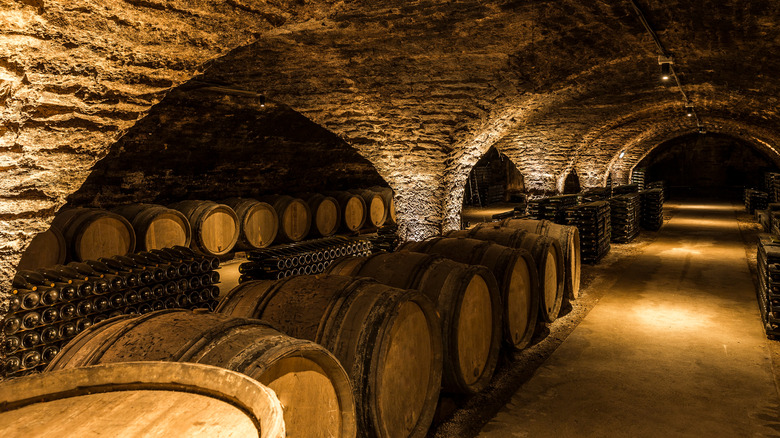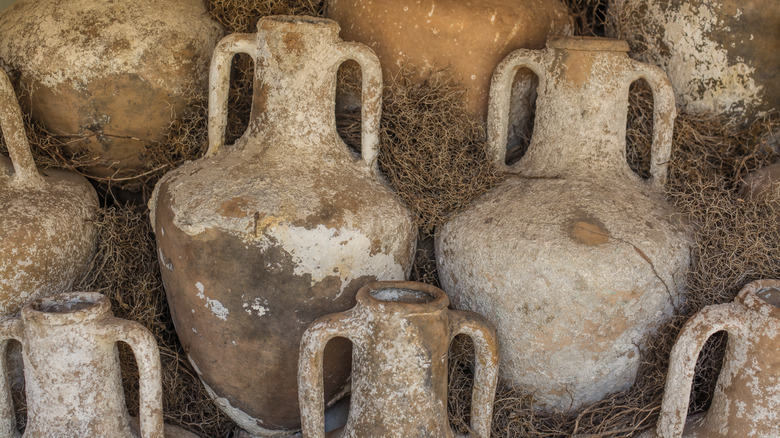The Romans' Version Of Wine Was Actually Pretty Weak
When you think of the ancient winemakers of old, do you envision barrels of grapes getting stomped on by the bare feet of toga-clad winemakers? If so, it turns out that's not far off from reality. In ancient Rome, there were opulent wineries where the wealthy would travel to watch people do exactly that. Though the atmosphere of ostentatious luxury might remind you of present-day must-visit wineries in places like California's Napa Valley, it turns out that the quality of the wine produced was a far cry from even the affordable wines under $10 you can buy today.
For one thing, wine wasn't served straight up. The Metropolitan Museum says that by the late 6th century B.C. in Greece, it was common for wine to be mixed at a ratio of three to four parts water to one part wine. Even at Roman Bacchanalian festivals, wine was blended to be about four to six parts water to one part wine. That means the idea of Plato and his homies gathering together for a symposium and getting sloshed might be somewhat disconnected from the truth — the wine they were drinking wasn't as strong as what we imbibe today. But there's a practical reason why wine was watered down in both Rome and Greece, and it doesn't have to do with keeping a clear head for philosophical discussions.
Watering down wine made both drinks taste better
There are a lot of myths about tap water you can stop believing, but the truth is that the taste of your water can vary depending on where you are. In modern times, those who don't like the taste of their tap water can buy bottled water at the store. In ancient Roman times, mixing water with wine was one way to mask any off flavors. It was also thought to purify the water, although there probably wasn't enough alcohol in the wine to kill harmful bacteria or diseases.
However, using wine to make water more "pure" and healthy to drink might have been counteracted by some of the other things ancient Romans added to their wine to make it taste better. Sometimes, they would add honey, which is fine, but they would also add lead to make the wine sweeter, along with ash, myrrh, and incense. According to NPR, the primary reason wine didn't taste good was because of spoilage and oxidation, as modern bottling practices had yet to be invented. This knowledge makes you wonder: If water tasted so bad it needed wine added to it, and if the wine was so bad that toxic substances and other ingredients like pine pitch were added to change its flavor, what would the ancient Romans think after drinking something like an ice-cold McDonald's Sprite?

